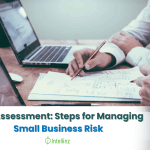In today’s digital era, a successful online presence is essential for any e-commerce business. Businesses have to implement efficient Search Engine Optimization (SEO) tactics to increase their exposure and outrank competitors because there are millions of websites contending for users’ attention on search engines like Google.
An in-depth discussion of the importance of SEO for e-commerce enterprises and how it may promote organic traffic, boost conversion rates, and improve overall online success will be covered in this article.
What is SEO?
Search engine optimisation, SEO for short, is the process of optimising your website for search engines. In other words, you are enhancing your website to increase the number of people who may see your goods or services by making yourself more visible online. The SEO process involves a wide range of diverse tactics.
Understanding SEO and Its Impact
Attracts More Traffic
Your e-commerce company needs to bring in customers to its website to generate sales. If relevant searches don’t bring up your website on the first page of Google, you won’t be able to do this. In the end, when someone is searching for an item, nobody scrolls past the first page.
So, this is what SEO can accomplish. Your website can draw in more visitors. By optimizing your website, you can increase its ranking on Google’s search results pages. The public will be able to locate you.
Improves the User Experience
To ensure that consumers find what they are looking for online, invest in SEO. You may be found for particular keywords, and your eCommerce store may have such products.
The relationship between SEO and user experience is advantageous. If Google determines that you can deliver a superior user experience, it will raise your ranking. As a result, it is something on which you need to put your full attention.
It Offers Lasting Effects
Many online retailers think about purchasing advertisements. They believe that by doing this, they can quickly entice visitors to their website to make a purchase. Although this might be effective, you must know this is not free. Additionally, multiple studies indicate that individuals no longer enjoy clicking on advertisements.
SEO can therefore take control at this point. An e-commerce website has the potential to provide long-lasting impacts with the right plan in place. You are spending time and money to raise the Google ranking of your internet presence.
Key SEO Strategies for Ecommerce Success
- Keyword Research and Optimization
Any effective SEO campaign starts with keyword research. Businesses may efficiently optimize the content of their websites to meet the search queries that potential customers use by identifying the appropriate keywords and search terms. A website’s visibility and organic results can be greatly enhanced by conducting in-depth keyword research and effectively inserting those keywords into page titles, headings, meta descriptions, and content.
- Optimizing On-Page Elements
On-page optimization entails adjusting a variety of website components to enhance its overall SEO performance. Meta tags, header tags, URL structures, picture alt tags, and internal links are all subject to optimization. E-commerce companies may increase their chances of appearing higher in search results and attracting more organic traffic by making sure these features are optimized and aligned with the right keywords.
- High-Quality Content Creation
When it comes to SEO, content is king. Producing interesting, helpful, and engaging content not only attracts visitors but also motivates them to stay on the website longer and make further visits. E-commerce companies should concentrate on creating valuable information for users, such as blog entries, user guides, and product descriptions. Furthermore, adding pertinent keywords naturally to the article might increase its SEO value and boost search rankings.
- Mobile Optimization
A website needs to be optimized for mobile devices due to the rising use of smartphones and tablets. Due to Google’s preference for mobile-friendly websites in search results, e-commerce companies should make sure their websites are fully responsive and offer a consistent browsing experience across all devices. Mobile optimization includes optimizing page speed, responsive design, and user-friendly navigation, ultimately improving the overall user experience and increasing the chances of higher search rankings.
- Building High-Quality Backlinks
Backlinks play a vital role in determining the credibility and authority of a website. E-commerce businesses should focus on acquiring high-quality backlinks from reputable sources within their industry. These backlinks act as a vote of confidence and can significantly boost a website’s search rankings. Engaging in outreach campaigns, guest blogging, and forming partnerships with influencers or industry experts can help in acquiring valuable backlinks that enhance the overall SEO strategy.
- Utilizing Social Media
E-commerce companies have an excellent chance to connect with their target market through social media platforms, promote their goods and services, and increase website traffic. Businesses may improve brand recognition, interact with consumers, and draw new ones to their websites by integrating social media into their SEO strategy. Sharing valuable content, running targeted advertising campaigns, and leveraging user-generated content can all contribute to better search rankings and increased website traffic.
Wrap-Up
SEO is essential for the development of e-commerce companies. Businesses may raise conversion rates, increase organic traffic to their website, and establish themselves as trusted brands in their sector by putting SEO methods into practice. From conducting thorough keyword research to optimizing on-page elements and building high-quality backlinks, every aspect of SEO plays a crucial role in outranking competitors and achieving top search rankings on Google.






